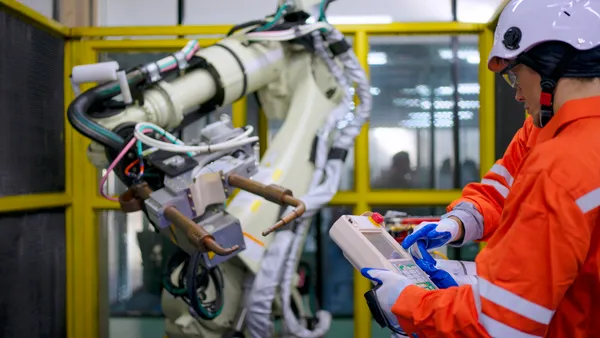Alex Chertoff is a senior research specialist and Tim Pasto is a director, advisory at Gartner Inc.
CHROs are increasingly turning to talent analytics to derive insights on outcomes like attrition, performance, and employee sentiment to influence critical business and talent decisions. In fact, according to Gartner research, 78% of HR leaders say their organization relies more heavily on talent data to make decisions compared to four years ago (up from 48% in 2019).
Despite the commitment from CHROs to making HR more data-driven, organizations are struggling to maximize the impact of talent analytics. According to a September 2023 Gartner survey, 71% of HR leaders reported the current structure and capabilities of their talent analytics team is limiting their impact.
Additionally, talent analytics leaders are sharing that they don’t have the necessary skills needed to meet their strategic goals, highlighting the data literacy issues at hand for many in the HR function and the difficulty they have developing technical skills. Almost 3 in 4 talent analytics leaders say they need new skills to meet their strategic goals, according to a June 2022 Gartner survey.
To build a successful talent analytics team, CHROs should focus on developing talent analytics professionals that play three key roles: the analytics expert, decision enabler, and the strategic consultant.
By following this guidance, talent analytics can influence HR’s biggest functional decisions, act as a central enabler of innovation throughout HR by providing objective and timely advice and serve as a consultative partner that increases the CHRO’s credibility throughout the organization.
Analytics Experts
While CHROs are increasingly focused on using data to build skills-based organizations, talent analytics teams need competent analytics experts to maintain talent data, effectively analyze it, and support an integrated approach to workforce planning and other strategic activities. To develop analytics experts, CHROs must build a culture of technical learning in HR.
CHROs can do this by fostering collaboration between talent analytics and learning & development (L&D) team leaders to identify the critical technical skills for their organization and develop training programs, learning opportunities, and pathways that support technical upskilling. Ongoing skills development is required if organizations want to keep pace with advances in technology and methods that unlock new value, such as predictive analytics.
Analytics experts must be able to leverage and analyze talent data with confidence. To set them up for success, CHROs should:
- Meet with their HR technology and talent analytics team leaders to discuss technical skills gaps to future-proof the HR function.
- Direct L&D to create learning pathways that help talent analytics stay ahead of new analytics methods and technologies.
- Consider rotational programs with IT or central data and analytics teams to borrow technical skills and accelerate talent analytics maturation.
Decision Enablers
Only 9% of HR leaders feel their HR function has been truly successful at enabling HR staff with data to help them support workforce-related business decisions, according to a June 2023 Gartner survey. Talent analytics teams need a strong understanding of how HR adds strategic value and supports the entire employee life cycle to better serve clients throughout an organization, but most don’t have professionals with this talent management skill set.
As talent processes are disrupted by external changes and technology, CHROs must ensure HR leaders have uninterrupted access to relevant data and insights. To do so, they must work to develop decision enablers. Decision enablers must have a deep understanding of HR’s priorities and activities in order to articulate trade-offs and help leaders make data-driven decisions with confidence.
To develop decision enablers, CHROs should:
- Identify data needs throughout the HR function and connect talent analytics teams to resources that provide a full view of the annual HR cycle and help integrate insights.
- Partner with L&D to host sessions between talent analytics staff and HR leaders to transfer HR domain knowledge.
- Connect with their talent analytics team leader to identify which HR processes could benefit with talent analytics insights.
Strategic Consultants
Oftentimes, business leaders are facing many competing priorities — such as shareholders, internal stakeholders, and customers. Because of this, CHROs can struggle to influence their decision making, even when equipped with the analysis to do so productively. To help solve problems and influence decision making among key stakeholders, talent analytics teams need to develop strategic consultants who are skilled in persuasion and storytelling. However, talent analytics teams significantly lack strategic consulting skills.
According to the June 2023 Gartner survey, despite 81% of talent analytics leaders stating that it is important for their team to be proficient in strategic consulting, only 47% are currently satisfied with their team’s proficiency at strategic consulting. CHROs must develop a talent analytics capability in HR for direct collaboration between their teams and the business. This strategy empowers HR to solve hands-on problems with data and strengthens its brand as a credible strategic partner to the business.
Strategic consultants have the power to influence decision makers, including those outside HR, through acumen, agility and strong stakeholder management. To best enable strategic consultants, CHROs should:
- Coordinate with other C-suite members to sponsor partnerships between talent analytics and other functions’ analytics teams to share best practices.
- Evaluate the extent to which HR technology (e.g., data visualization tools) can effectively help talent analytics communicate its insights to stakeholders.
CHROs should use this guidance and recommendations to grow their talent analytics function from a reporting shop to a strategic partner. By adhering to this guidance, talent analytics can influence HR’s biggest functional decisions, act as a central enabler of innovation throughout HR by providing objective and timely advice as well as serve as a consultative partner that increases the CHRO’s credibility throughout the organization.











